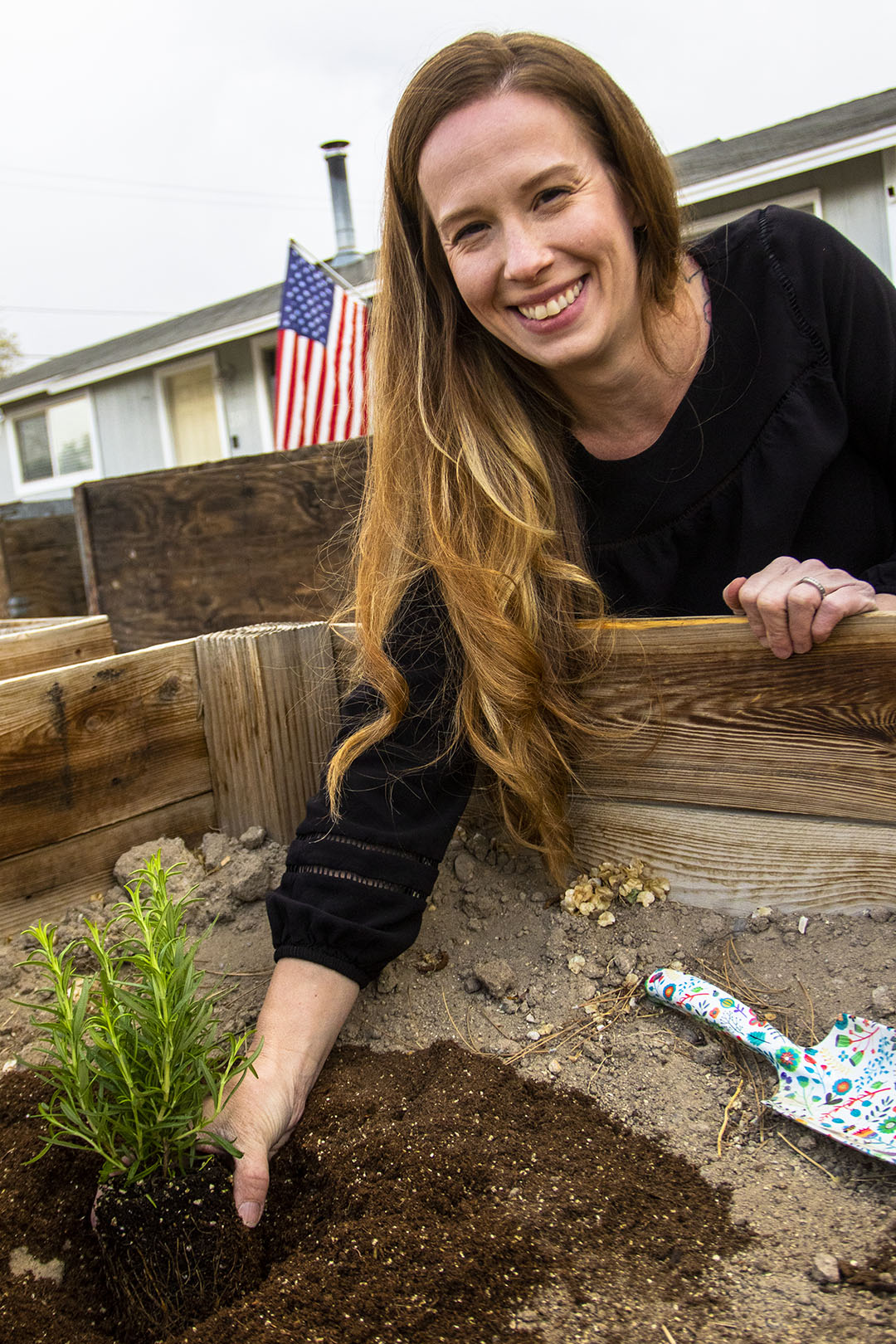National accelerator program helps women bring products to market.
A 2017 United States Department of Agriculture Census of Agriculture report states that of the 3.4 million agricultural producers in the U.S., women comprise just 36 percent.
Fortunately, in recent years, the number of female farmers and producers has been rapidly escalating in what has been a largely male-dominated industry.
In 2021, Nevada’s hardworking women in agriculture received a beneficial boost to maintain their momentum. Among a pool of 25 applicants, 10 Nevada women were accepted into the Farm2Food Accelerator program launched by the National Association of State Departments of Agriculture, in partnership with the Nevada Department of Agriculture, joining a program already in place in Oregon and Washington for female farmers wishing to bring products to market.
After a rigorous application process, several Northern Nevadans were accepted into the program. It provides support for female farmers growing what’s defined by the USDA as specialty crops — fruits and vegetables, culinary herbs and spices, tree nuts, and honey — and then crafting products from them for retail sale — such as jam from their strawberries or flour from their wheat.
Processing farmer-grown goods into food or beverage products has been proven to increase profitability and visibility for farms while expanding market seasons and reach.
“The Farm2Food Accelerator is very important for female growers in Nevada and across the nation. It provides an access point, a how-to on recipe ideation, marketing products, and [scaling] for different markets,” says NASDA Foundation executive director Elizabeth Rowland. “This program not only invests in women growers, but it provides local and regional markets the ability to diversify the products they can offer buyers. Women growers can access markets while contributing to the economy.”
Meet three local women who, with the help of the NASDA program, learned to bring products sprung from their hands and hearts to market, to enrich kitchens everywhere.
A Labor of Love
Labor pains were really kicking in as Crystal Leon of The Radish Hotel in Sparks hit send on her application to NASDA. Just the day before, her fellow farmer friend had told her about the new accelerator program being offered to Nevada female agricultural producers.
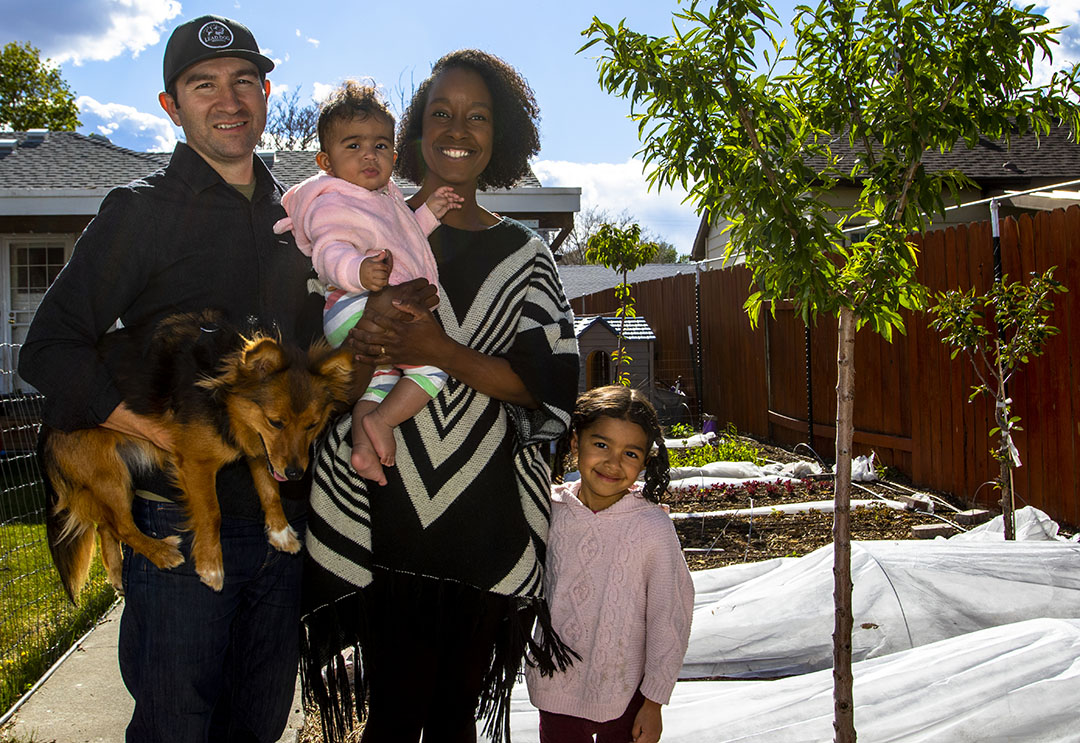
But having a baby didn’t stop this industrious entrepreneur from getting her application in on time.
To be accepted, applicants’ operations had to be at least 50 percent female owned, with value-added products being made using ingredients sourced from their farms. Leon, whose apiary provided honey for several products she was making and selling at local farmers’ markets, fit the bill.
Before moving to Sparks with her husband, Carlos, and daughter, Noel, in 2019 to be closer to Carlos’ mother, Leon had spent a decade teaching urban agriculture in the Bay Area. But she always dreamed of starting something of her own, “so I could stop leaving these beautiful gardens behind!”
Today, she’s living that dream.
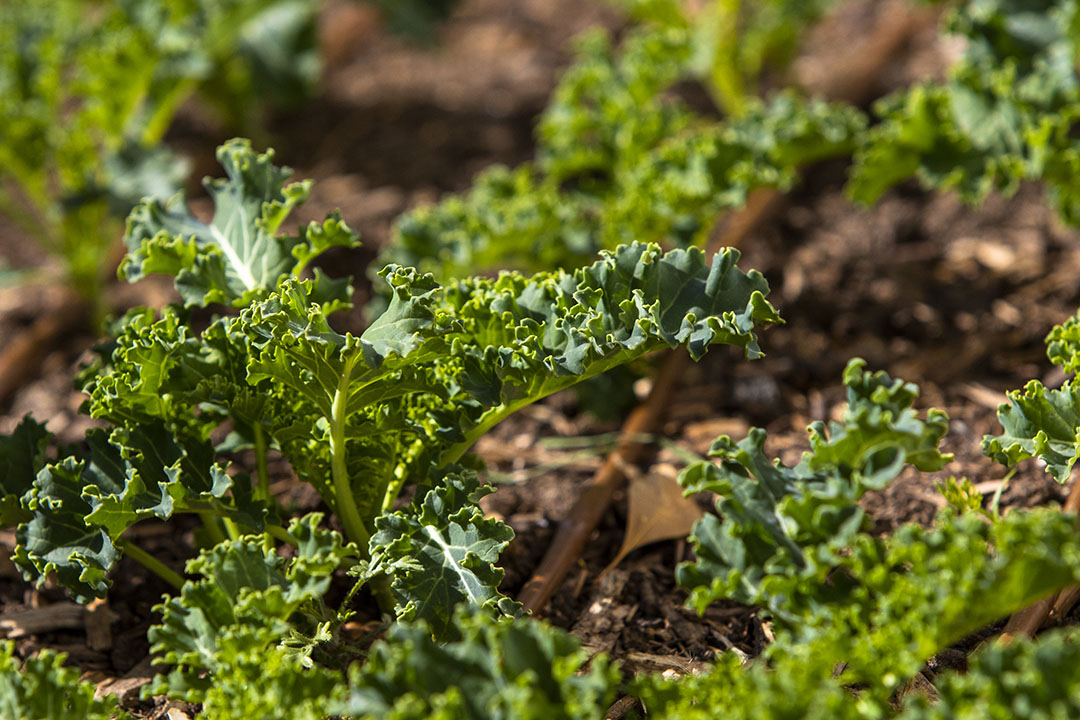
Upon arriving in Nevada, the Leons purchased a home in Downtown Sparks, intent on starting a small farm. Before they even bought couches, they had seeds in the ground.
It was May, and they were not going to miss the growing season.
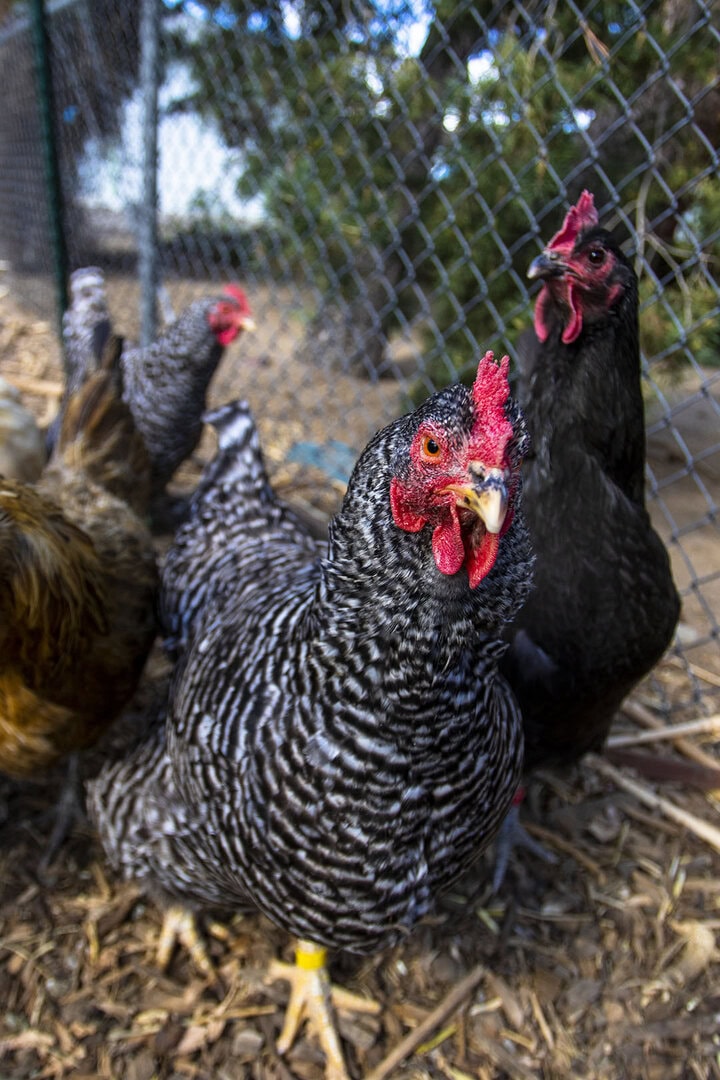
On their quarter acre, they produced enough food from their garden in 2020 to share with people not keen on grocery shopping during the pandemic. She also began making granola with her honey and selling it at local farmers’ markets.
All her aspirations were fast tracked once she was accepted into the Farm2Food Accelerator program.
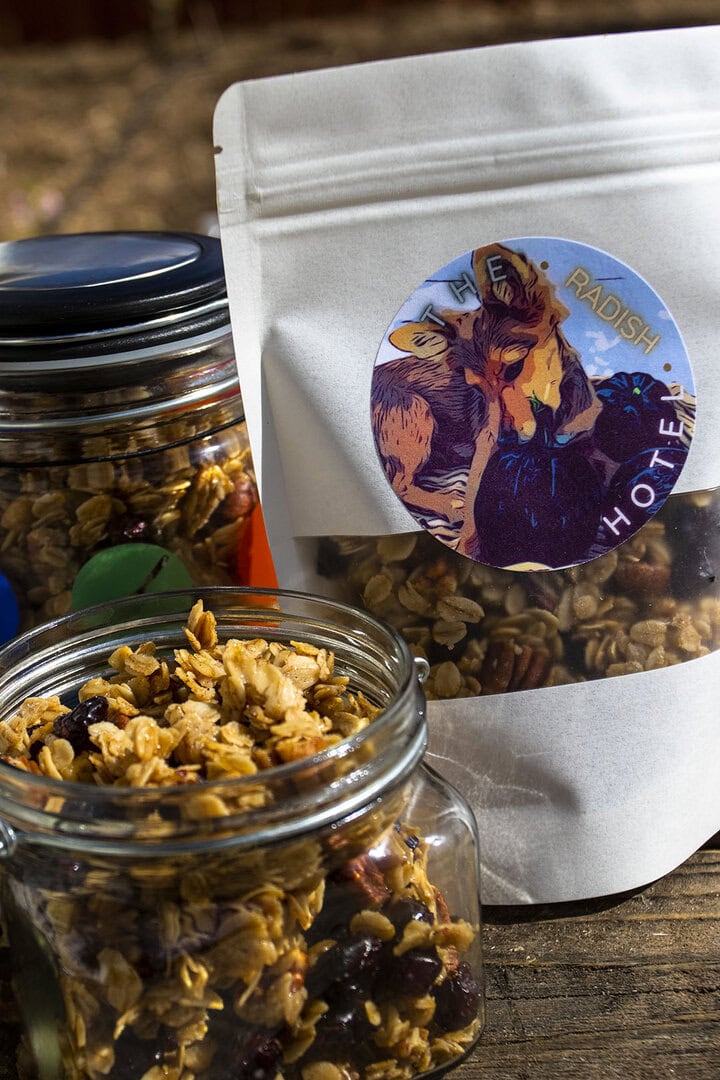
Leon learned the steps needed to take products from maker to market using Farm2Food-provided resources that often are too costly for many food-product start-ups. Merely identifying the nutritional information necessary for a single product label can cost thousands.
Accelerator mentors worked with her to identify retail goals, taking into consideration her current capacity for growth. She learned how to fine-tune, scale up, and determine the shelf stability of her granola recipe.
Ultimately, the accelerator gave her a crash course in bringing a product to market, and the confidence to know she can.
A Family Affair
“Why is there so much stuff in our food?!” bemoaned Sara Thomas of No BS Farm in Fernley when her doctor diagnosed her infant daughter with food allergies.
Thomas was breastfeeding when she learned her baby was allergic to eggs, dairy, and soy — items Thomas was ingesting. Once her daughter’s allergies were confirmed, the doctor told her to stop eating all three. However, he did not edify Thomas about alternatives or tips for transitioning her family’s eating so dramatically, though her daughter’s life could be on the line.
She began educating herself.
Thomas soon realized how many foods are soy-based, including the vegetable oil used in myriad products. Most items on grocery store shelves contained at least one of the three problem ingredients. This just motivated her to begin making all the family’s meals herself — no easy endeavor.
Thomas realized how much of their family’s lives revolved around eating, yet places to eat healthfully were limited. Plus, at the time, Thomas was working for the City of Fernley, and meal-making was time consuming.
She’d already been enjoying gardening at the family’s Fernley home. Realizing she needed to focus firmly on her family’s health, she left her job at the city and decided to become a professional gardener, starting an urban farm in the front yard of their quarter-acre property in 2020.
“We grow food, not lawn,” Thomas says, chuckling.
She named it No BS Farm after a grocery store trip had her exclaiming, “I don’t want any BS in my food!”
Thomas wanted to sell her produce and cottage-license products, such as her sourdough bread, at the local farmers’ market — but unfortunately, due to COVID, the market had shut down.
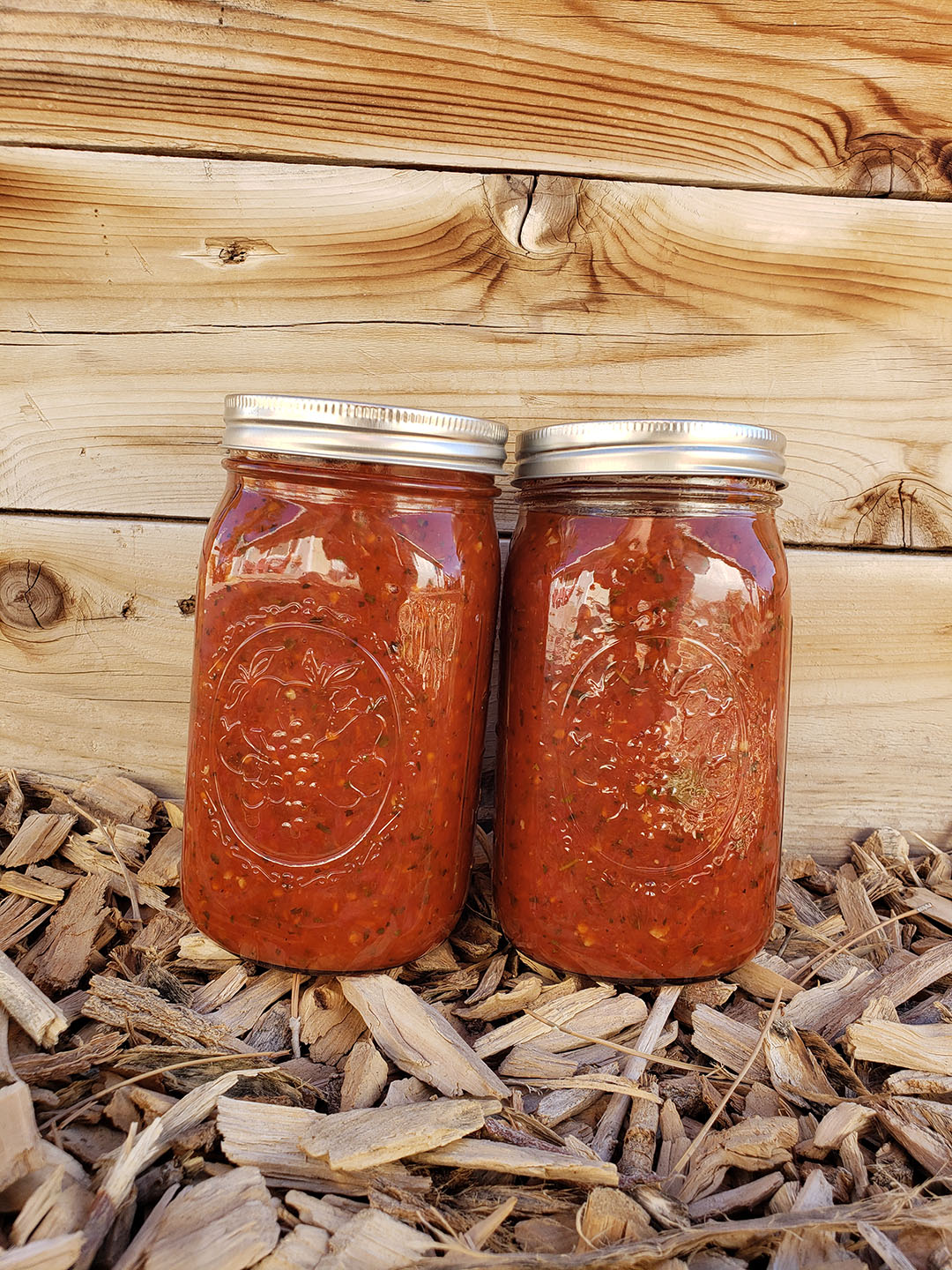
Thomas decided to take the Fernley farmers’ market over herself in 2021. She says she “likes to do it all.”
That fall, she saw an advertisement for Nevada’s Farm2Food Accelerator program, applied, and was accepted.
Each participant was only allowed to focus on one farm-fresh product. Mentors helped Thomas define her target audience, and a survey of family and friends helped her identify her additive-free pasta sauce as her market product. She was already growing the primary ingredients — tomatoes, peppers, basil, garlic, onions, and zucchini — in her garden.
She also learned that fresh was the way to go with her sauce, rather than refrigerated, which tended to classify it as processed. Thomas reworked her recipe with the help of program pros and took herself “through an experience to see her products from a customer’s perspective.”
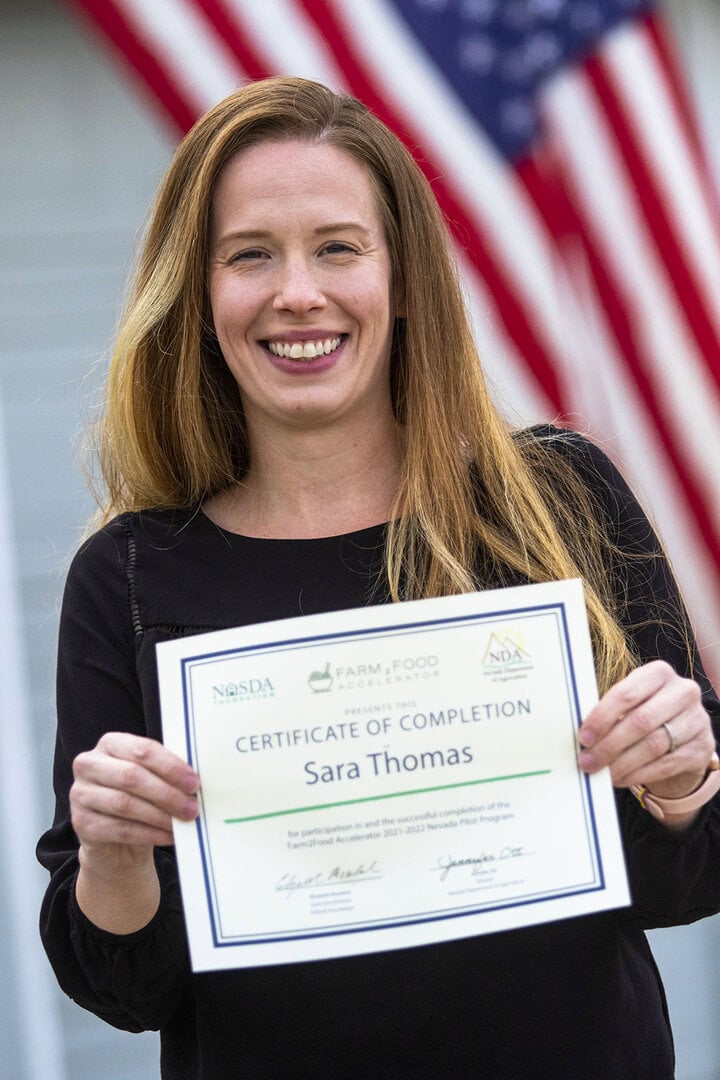
One of the premier benefits of the Farm2Food program was the opportunity to attend America’s first Salon International de l’Alimentation, a global food and beverage exhibition for producers, held in Las Vegas in March 2022. There, Thomas found abundant inspiration, such as seeing people producing pasta sauce in bulk to sell to restaurants, something she’d never considered.
“It really opens your eyes as a food manufacturer,” Thomas says.
Through Farm2Food she learned the “super scary” art of pitching herself, as well as how to break down her costs to set an appropriate price for her sauce.
Among the valuable resources provided by the program was the community of female peers she met — they went through the process together, boosting each other’s confidence and providing support through every step.
Thomas’s pasta sauce remains nameless for now, but the Thomas family currently is seeking farmland to rent and increase production, while also assisting a farming family looking to retire.
For the family, fast food has lost its appeal, and her older daughter now wants to be a farmer like mom.
Keeping It Local
When Stacy Fisk started her wellness herbs and medicinal plants farm on just over one acre of land in Fallon in 2018, she also was working full time for the Churchill County School District’s special education department. With one full-time farm employee, Fisk was busy with her job and building up her inventory of plants while putting together CSA baskets for sale.
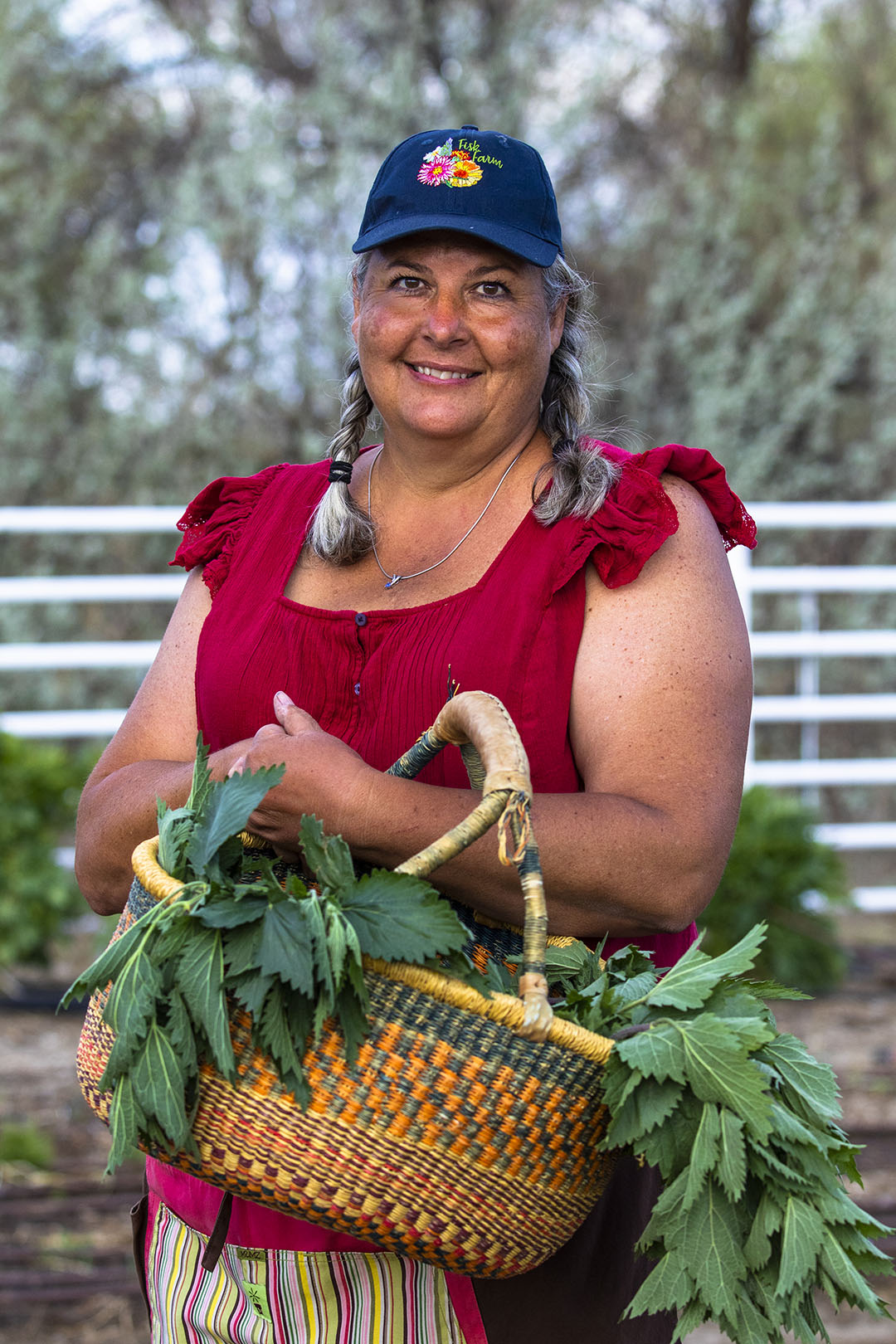
Fisk loved farming. When her family was facing health issues, her garden brought her joy and healing.
“This is what I need to do because this is where I find my peace and happiness,” Fisk told herself.
Once accepted into the accelerator program, she wanted to fill a local need. She tapped into the herbal apothecary she’d grown.
Not many people in the area were selling wellness herbs, something she knew well after taking a 1,000-hour online herbal immersion course through the Chestnut School of Herbal Medicine.
Fisk decided on an herbal blend including stinging nettle, smoky oat tops, and calendula that added vitamins and minerals to bone broth. Through the accelerator, she learned to make bigger batches based on cups versus grams. She also learned that her specialty items had a niche market, so she scoured social media groups to find it.
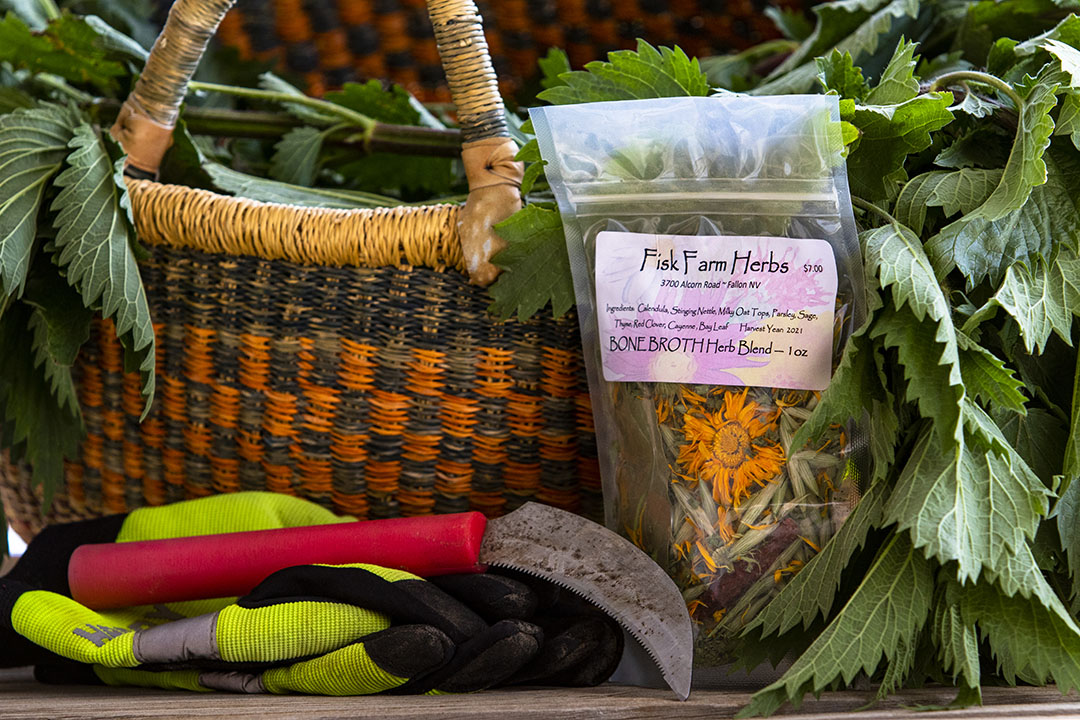
Packaging and licensing were other factors the program helped her explore. Medicinal herbs can’t claim healing properties by law. Yet her customer with multiple sclerosis is a believer in the benefits of Fisk’s herbs.
Fortunately, working with the NDA alone was enough to take her product to market — no need to involve the Food and Drug Administration.
Fisk decided to sell her product close to home versus other program participants with lofty goals of mass marketing their homemade goods. She wanted to keep her production small, focused, and benefitting people in her own community.
“I have to grow these herbs before I can actually package and sell them,” she says. “I really want to use my own product; I don’t want to import from anybody else.”
Live virtual sessions weekly built camaraderie among the women participating in the accelerator program. And Farm2Food helped Fisk broaden her dreams of going to market with several other product ideas she has, based on her newfound knowledge.
In 2022, Fisk retired from the school district, intent on helping her garden thrive. Resources she gleaned from Farm2Food will continue to prove their worth.
For female farmers in Nevada, the Farm2Food Accelerator program was a boon — and those of us who enjoy the fruits of their labors. NASDA leaders hope to gain funding for the Nevada program to continue.
Natasha Bourlin is a freelance writer who still is marveling at the efforts of these female farmers.
RESOURCES
The Radish Hotel
Theradishhotel.com
No BS Farm
Facebook.com/nobsfarmnv
Fisk Farm
Fiskfarmherbs.com
